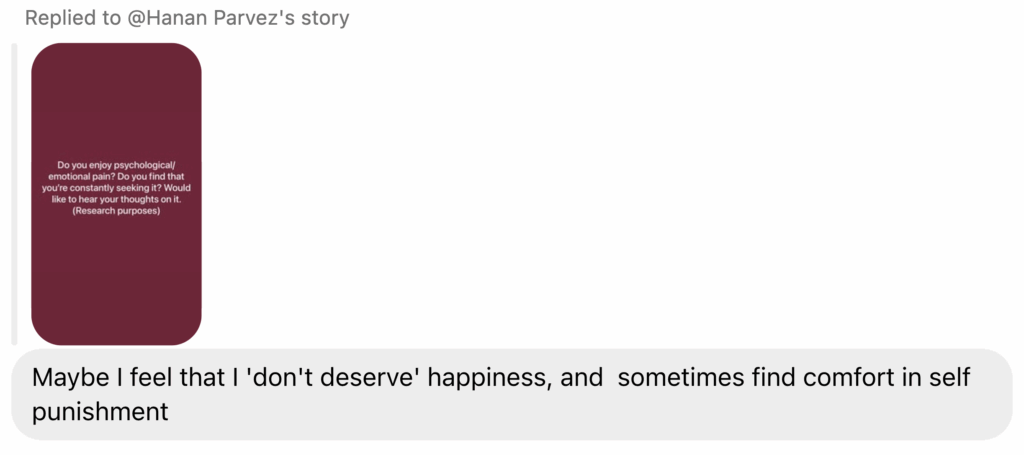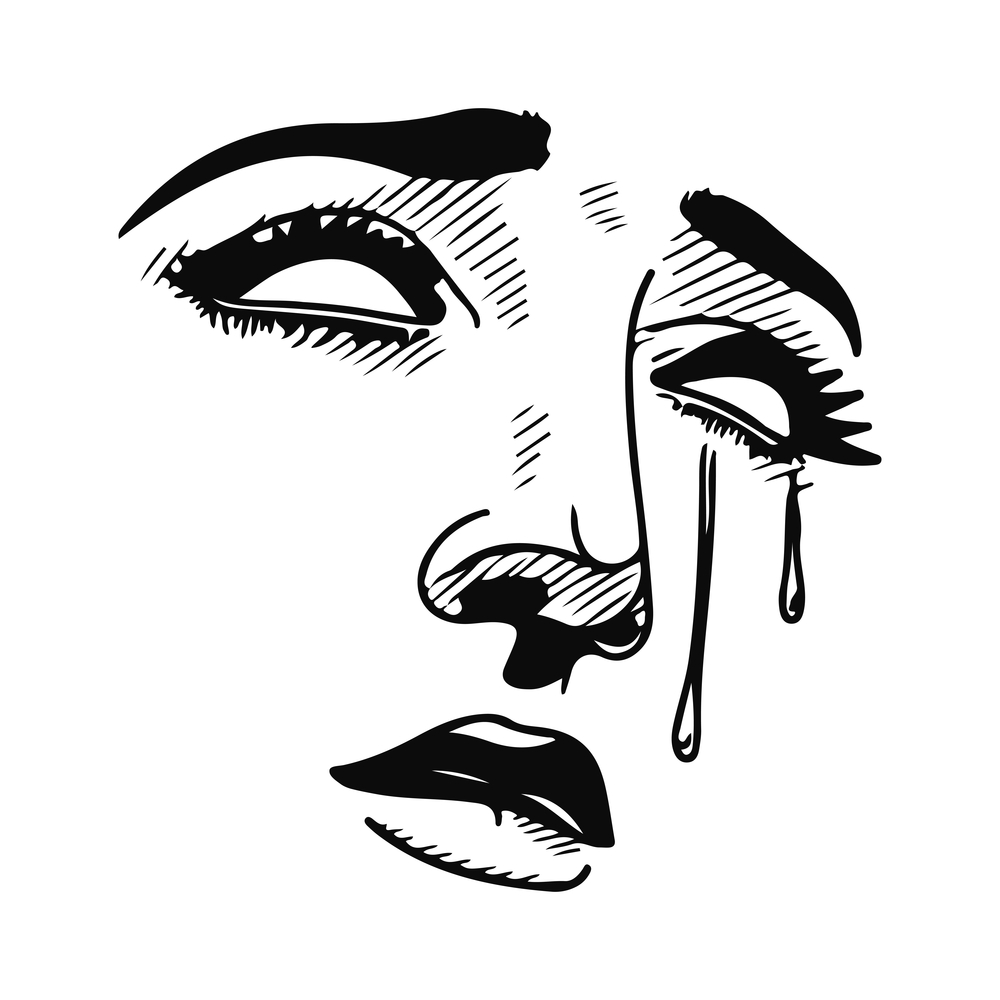Masochism means enjoying physical pain. We often hear about masochism in the context of deviant sexual behavior. A sexual masochist is someone who gets sexually aroused by pain. There’s also a term for someone who enjoys non-physical, non-sexual pain- a psychological masochist.
Psychological/mental/emotional masochism is when a person derives pleasure, satisfaction, or enjoyment from psychological or emotional pain. Like the broad concept of masochism, it’s a curious phenomenon, as humans are wired to seek pleasure and avoid pain. So what drives someone to enjoy psychological pain?
Psychological vs sexual masochism
| Aspect | Psychological Masochism | Sexual Masochism |
|---|---|---|
| Motivation | Meeting psychological or emotional needs. | Sexual arousal or pleasure. |
| Context | Can occur in relationships, work, or everyday life without sexual intent. | Usually limited to sexual fantasies, behaviors, or role-play. |
| Awareness | Mostly unconscious; the person may not realize they are seeking emotional pain. | Mostly conscious; the person intentionally engages in the behavior for arousal. |
| Expression | Involves choosing partners who mistreat them or sabotaging success. | Involves BDSM activities such as bondage. |
| Psychological roots | Linked to childhood emotional deprivation, guilt, or low self-worth. | Likely stems from sexual conditioning and sexual imprinting. |
| Reinforcement | Reinforces negative self-image or feelings of victimhood. | Reinforces sexual gratification and arousal patterns. |
| Clinical Classification | Not a formal diagnosis; may relate to personality or relational patterns. | Classified as Sexual Masochism Disorder if it causes distress or impairment. |
Origins of psychological masochism
1. Feel-good chemicals
When you exercise, your body is stressed, and you feel physical pain. To cope, your brain also releases feel-good neurotransmitters, such as dopamine and endorphins. These are the body’s natural painkillers. The same thing happens with the mind. When you undergo mental stress, you feel psychological or emotional pain. To the brain, it’s the same as physical pain, so it again releases feel-good chemicals to help you cope.1Jain, A., Mishra, A., Shakkarpude, J., & Lakhani, P. (2019). Beta endorphins: the natural opioids. Ijcs, 7(3), 323-332.
Over time, you may repeat the behaviors that cause you emotional pain because you learn that they can ultimately feel good.
2. Childhood trauma
Humans have an innate drive for masochistic submission- the drive to submit to a dominant aggressor. But why does it exist?
If you look at the dominance-submission interactions (fighting) of two animals of the same species, you’ll notice that at some point, the weaker one gives off submission signals, and the fight ends. One such signal is exposing the most vulnerable part of the body- the neck- to the aggressor. When that happens, the aggressor loses the motivation to attack, and the submissive animal is not harmed further.
In humans, the same thing is likely happening in parent-child relationships, especially in the mother-child dynamic.2Menaker, E. (1956). A note on some biologic parallels between certain innate animal behavior and moral masochism. The Psychoanalytic Review (1913-1957), 43, 31. The child is powerless, helpless, and dependent on the mother (the weak one). The child expects unconditional love and support from the mother. Getting all that helps the child develop in a psychologically healthy manner. Things get interesting when the mother neglects or abuses the child.
Impact of abuse
Neglect or abuse here can be seen as an act of aggression or dominance. The child can’t fight back and so has to respond submissively. The child reacts submissively and non-assertively to maintain the parent-child bond and survive. Instead of aggressing against the mother, the child turns that aggression inward and becomes a masochist.
The child’s ego or self-image fails to develop healthily. They either don’t think much, or think very low of, themselves. Their parents’ criticism and humiliation become their negative self-talk. They may have ensured their survival by their masochistic, submissive response, but they are damaged psychologically.
They grow up feeling unworthy of love and happiness. Their self-punishment may manifest as perfectionism. They tend to seek out situations that confirm their negative, limiting beliefs. You’ll typically observe the following traits in them:
- Low self-esteem
- People-pleasing
- Self-punishment (from unconscious guilt)
- Self-sabotage
I posted a story on my Instagram asking if anyone willingly sought out emotional pain and why. Here’s one response:

3. Regaining power
Humans want power. When they lose power, they try to regain it. Someone who goes through childhood trauma feels powerless, as they should, because they had no control over what happened. Their mind then does all sorts of things to try and regain some power.
One such thing is called trauma re-enactment or repetition compulsion. That is, they try to re-enact or relive their traumatic experiences. They try to create the emotionally painful experiences they’ve been through repeatedly. Why?
Previously, they had no control over their pain, but now they do.3Békés, V., Perry, J. C., & Robertson, B. M. (2017). Masochism: A mixed-method analysis of its development, psychological function, and conceptual evolution. The Psychoanalytic Review, 104(1), 33-63. Now, they can recreate those experiences with more control and in safer environments. This helps them process and heal trauma. It can even be an enjoyable experience for the mind.
As one mental health forum user said:
“At least this time it isn’t as bad as it was the last time. I am in control.”
Another way traumatized people try to regain power is by inducing guilt in their aggressor. Through psychological masochism, they project the unconscious guilt that they feel on the aggressor. This can also be a way to extract attention, love, and care from the aggressive caregiver.
“See, I’m always suffering. You did this to me. You’re the bad one, not me. Love me and care for me.”
4. Moral masochism
Some psychological masochists tend to be in this competition to become ‘the greatest sufferer in the world’. They believe nobody has suffered like them. Painting yourself as the victim signals you’ve been wronged. So you must be morally superior to the one who wronged you. The ego boost of:
“You’re the bad one, not me.”
Only a person with a weak ego seeks an ego boost. This is why masochism is associated with narcissism.4Békés, V., Perry, J. C., & Robertson, B. M. (2018). Psychological masochism: A systematic review of the literature on conflicts, defenses, and motives. Psychotherapy Research, 28(3), 470-483. Specifically, psychological masochism seems to overlap significantly with covert or vulnerable narcissism.
5. Existential validation
Some people enjoy the thrill of the fight-or-flight stress response. They love all the misery and drama. It makes them feel alive. Feeling pain validates your existence. Here’s what a person had to say on LinkedIn when I asked the same question as I did on IG:

As the song Pain by Three Days Grace says:
“I’d rather feel pain than nothing at all.”
6. Society
Society normalizes pain, conflict, and struggle.
“It is how it is.”
If you don’t like your work, you get the message that you need to keep doing it and keep tolerating it. If you’re in an unhealthy relationship, you get the message that you should do what you can to save it. Even if you know it’s not worth saving. I’m not saying that life doesn’t involve pain and suffering, but you have to know what’s worth suffering for and what isn’t.

